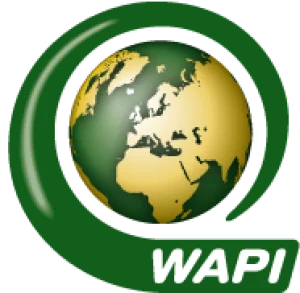Inter-American Service Convention and Additional Protocol (IACAP)
The Inter-American Convention on Letters Rogatory and its Additional Protocol (collectively known as IACAP) are multilateral treaties designed to facilitate judicial cooperation among member states in the Americas. Specifically, these agreements streamline the process of serving legal documents across borders in civil and commercial matters by providing a standardized method that is more efficient than traditional letters rogatory.

What Is the Inter-American Service Convention on Letters Rogatory and Additional Protocol?
The Convention (1975)
Adopted in 1975, the Convention establishes a formal framework for transmitting judicial documents (such as summonses, complaints, and subpoenas) from one country to another through Letters Rogatory. Furthermore, it outlines the legal mechanism for one court to request assistance from a foreign court in serving documents.
The Additional Protocol (1979)
The Protocol, signed in 1979, supplements the Convention by introducing specific procedures and standardized forms (Form A, B, and C) that streamline the service process. Whereas the Convention focuses on legal authority and jurisdiction, the Protocol emphasizes practical implementation. Moreover, it mandates direct communication between Central Authorities and provides official templates to be used for requests, service, and confirmation.
Participating Countries
Trusted by Legal Professionals Worldwide
Why Choose Us?
Expertise
We specialize in service of process under the Inter-American Convention and ensure full treaty compliance.
Translations
Certified legal translations provided for Spanish, Portuguese, and other official languages required by treaty countries.
Accuracy
We prepare and review all required IACAP forms and letters rogatory to prevent costly delays or rejections.
Support
From submission to proof of service, we handle every step with real-time updates and dedicated client support.
Signatory Status: Inter-American Convention vs. Hague Service Convention
The table below compares countries that are signatories to the Inter-American Convention (IAC) and the Hague Service Convention. Some nations that are not part of the Hague Convention are IAC members, allowing parties to bypass diplomatic channels, avoid embassy fees, and choose a faster, more cost-effective route for service of process.
| Country | Signatory to Inter-American Service Convention | Signatory to Hague Service Convention |
|---|---|---|
| Argentina | Yes | Yes |
| Bolivia | Yes | No |
| Brazil | Yes | Yes |
| Chile | Yes | No |
| Colombia | Yes | Yes |
| Ecuador | Yes | No |
| El Salvador | Yes | Yes |
| Guatemala | Yes | No |
| Mexico | Yes | No |
| Panama | Yes | No |
| Paraguay | Yes | Yes |
| Peru | Yes | No |
| United States | Yes | Yes |
| Uruguay | Yes | No |
| Venezuela | Yes | No |
The Inter-American Convention offers a major advantage by eliminating embassy fees, which are a significant expense under the traditional Letters Rogatory route. Service is also faster, typically taking 3 to 12 months instead of a year. It is recognized as formal service, but still requires translated documents and a court-signed, stamped request form. For countries outside the Hague Service Convention, the IAC provides an efficient and reliable pathway. This approach ensures cost savings, timeliness, and compliance with international legal standards.
Key Benefits of Using the IAC for Service of Process
- Avoids embassy fees compared to Letters Rogatory.
- Faster process (3–12 months vs. about a year for Letters Rogatory).
- Recognized as formal service of process, same as Letters Rogatory.
- Requires translated documents.
- Requires a court-signed and stamped request form.
- Provides an alternative when Hague Service Convention is not applicable.
- Avoids diplomatic channels, saving time and costs.
Contact Our Team
To get in touch with us, please fill out the contact form below or give us a call on following details.
United States
+1 (213) 786 1161
United Kingdom
+44 (20) 38905643
Australia, New Zealand and Far East Asia
+61 2 7259 7299
Middle East and Africa
+44 (20) 38905643
Asia
+92 313-780-6280
Drop us a line
Email Stellar Konsulting
Get Help with the Inter-American Service Convention
Contact Us

Whether you’re a law firm litigating an international case or a private party trying to serve legal documents abroad, you need a reliable expert in Inter-American Convention service of process. Let Stellar Konsulting handle the paperwork, compliance, and logistics so you can focus on your case.
We’re here to ensure your documents are served properly, on time, and in full compliance with the Inter-American Service Convention and Additional Protocol.










